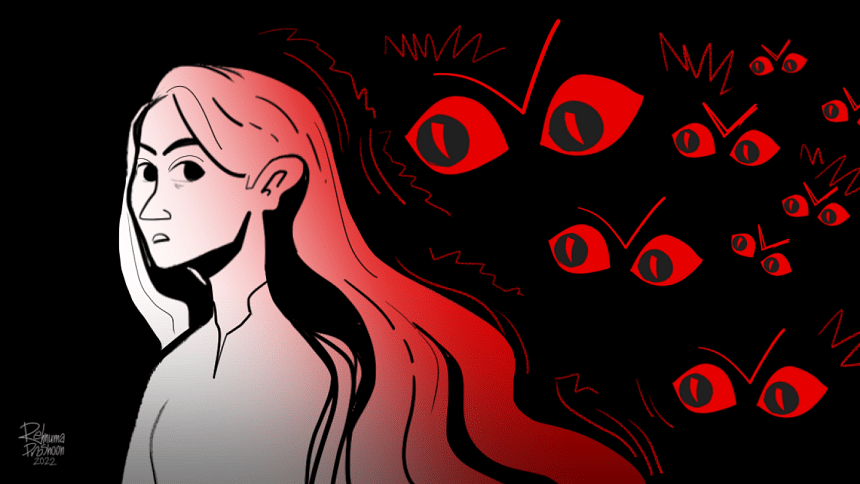When did we stop being human in the pursuit of a headline?

In Muradnagar, a woman was raped. She was beaten. She was filmed. Then the video tore across social media. Writing about it felt cruel; reading about it, even more so.
The story did not end there.
A Prothom Alo report exposed a second assault. It showed how the pressure of people hounding for interviews forced her to leave her home.
On Monday afternoon, the 21-year-old mother of two left her parent's residence with her children under police escort.
By Tuesday morning, she, her parents and relatives had vanished. They did not hide from the rapist. They hid from us—reporters, YouTubers, and curious neighbours camped outside the house, shouting questions and flashing their cameras.
I have covered uncomfortable assignments before. But nothing has been so outrageous.
Yes, the law caught up with her attacker. Fazor Ali was arrested under the Women and Children Repression Prevention Act.
Four bystanders face charges under the Pornography Control Act for filming and sharing the clip.
The survivor filed two cases and secured a High Court order to delete every image within 24 hours.
Yet, a newspaper published her interview on camera without even blurring her face; airing her tears and trauma in full view of the public.
What justice can a court deliver when the press becomes a perpetrator? Legal action may punish crimes, but it cannot heal the wounds we inflict with our lenses.
When did "public interest" become an excuse to invade a survivor's home? When did we decide her trauma belonged to every stranger with a phone?
International guidelines and our own code of conduct are clear.
We blur victims' faces, conceal names and identifying details, seek informed consent and the list goes on.
When someone says no, we must stop.
Yet we kept rolling. We chased her family with microphones. We live-streamed her fear. We cornered her elderly parents. We turned her home into a stage.
This is not journalism. It is harassment in search of a byline.
True journalism shines light on injustice without destroying dignity. It balances the public's right to know with a survivor's need to heal. It measures success by the change it brings—not by clicks or views.
We have turned the victim's trauma into commodity in an insatiably frenzy for traction.
In the process we stopped being humans.

 For all latest news, follow The Daily Star's Google News channel.
For all latest news, follow The Daily Star's Google News channel. 



Comments